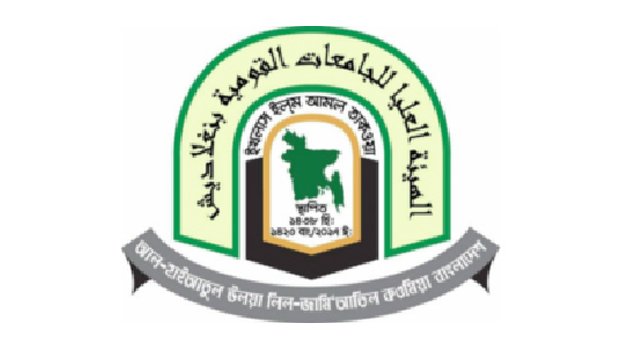Qawmi madrasa regn mandatory
Committee to formulate integrated policy

The government has taken an initiative to make the registration of Qawmi madrasahs mandatory.
The Technical and Madrasah Education Division of the Education Ministry has formed a 15-member committee to formulate an integrated policy in this regard, said Syed Asgar Ali, an assistant secretary of the ministry.
Habibur Rahman, additional secretary (Madrasah) of Technical and Madrasah Education Division of the ministry, was made convener and Md Abdus Salim, inspector of Bangladesh Madrasah Education Board, was made member secretary of the 15-member committee.
Allama Mahmudul Hasan, president of Qawmi madrasah education board Befaqul Madarisil Arabia Bangladesh (BEFAQ), principals of some leading Qawmi madrasahs, chairman of the Bangladesh Madrasah Education Board, vice-chancellor of the Islamic Arabic University and representatives of religious affairs ministry, primary and mass education ministry and social welfare ministry were made members on the committee.
Talking to the Bangladesh Post on Thursday, Habibur Rahman, convener of the committee, said they have moved forward to formulate an integrated policy to ensure up-to-date education system for religious educational institutions, including the Qawmi Madrasah, and bring the madrasahs under government registration.
Prime Minister Sheikh Hasina on April 11 in 2017 made an announcement to recognise Dawra-e-Hadith (Takmil) Certificate, top degree in Qawmi Madrasah, as equivalent to Master’s degree in Islamic Studies and Arabic.
Later on September 19 in 2018, a bill was passed in the Parliament in this regard. The law recognised ‘Al-Haiatul Ulya Lil-Jamiatil Qawmia Bangladesh’ as a board to arrange central examinations and issue certificates. It consists of six Qawmi Madrasah education boards-- Befaqul Madarisil Arabia Bangladesh, Befaqul Madarisil Qawmia Gauhordanga Bangladesh, Anjumane Ittehadul Madaris Bangladesh, Azad Deeni Edaraye Talim Bangladesh, Tanjeemul Madarisid Diniya Bangladesh, and Jatiya Deeni Madrasa Shikkha Board Bangladesh.
Maulana Shamser Harunur Rashid, principal of Jamia Baitul Quran Mahmudabad Sylhet, told the Bangladesh Post that the Qawmi Madrasa was running well. As a result of registration with government, it may deviate from the Deobandi model, he added.
He, however, said that the government’s move to formulate policy to bring the Qawmi madrasahs under registration would not have been necessary if the alem-ulama (scholars) of Qawmi Madrasa had extended support to the previous desire of the government. It (government) intended to establish a university or any other separate institution to supervise the Dawrah-e-Hadith examinations as well as the Qawmi madrasas.
When asked about apprehension of some Qawmi Madrasah teachers and students, Habibur Rahman, additional secretary of the Education Ministry, said the government is working to bring Qawmi madrasahs under the mainstream education system. “We just formed the committee to formulate policy. No meeting of the committee was held till now. Representatives of Qawmi madrasahs were kept in the committee and the policy will be formulated through incorporating the opinions of the madrasah teachers and students,” he said.
The country’s madrasah education system is divided into two categories-- Alia and Qawmi. All the Alia madrasahs are registered with and supervised by the Bangladesh Madrasa Education Board. However, according to a report of the Bangladesh Bureau of Educational Information and Statistics, there are about 14,000 Qawmi madrasahs across the country and some 15 lakh students study in the madrasahs. But these madrasahs are not under monitor and supervision of the government.
The country’s Qawmi madrasahs don’t teach science, social science, mathematics and literature. Only a handful of Qawmi madrasas teach Bangla and English up to class eight.



